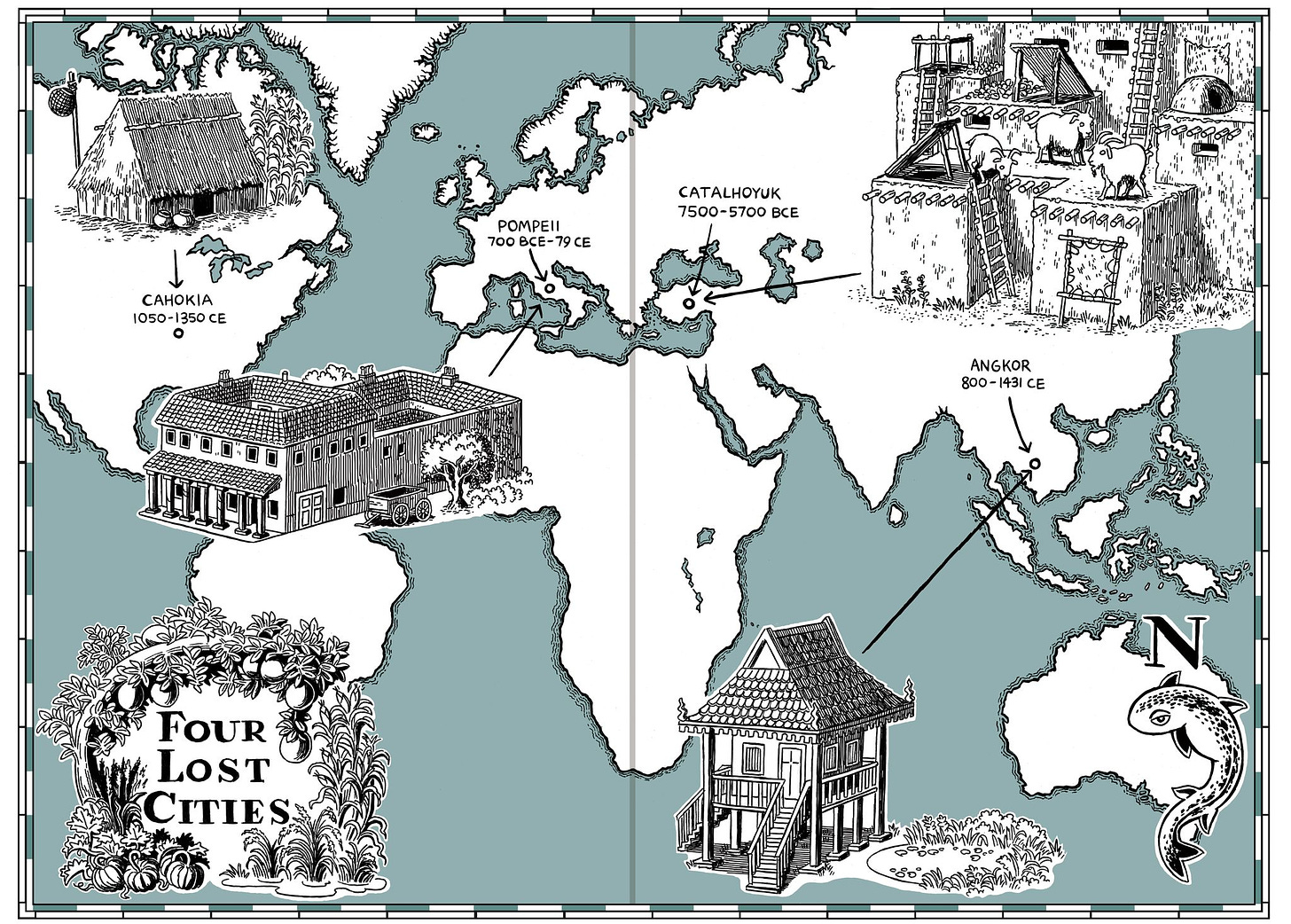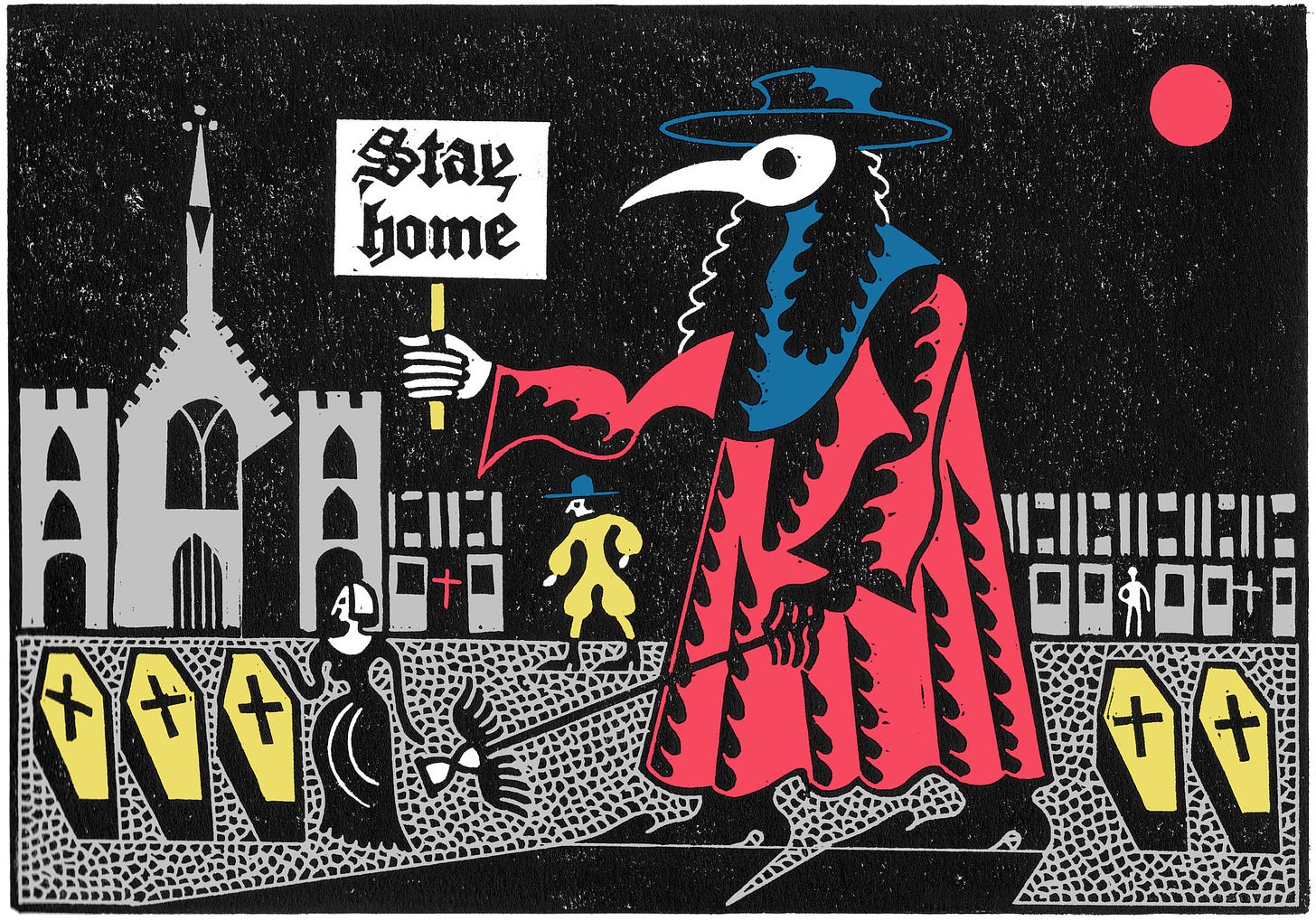I grew up a few miles away from Disneyland, so naturally I visited the park a lot. My dad, who’d grown up in L.A., knew the secret to a perfect Disneyland experience: Visit during January, on a weekday. Sure, some of the rides would be closed for repairs, but the crowds would be so thin that you could go through the Haunted Mansion fifteen times in a row without ever waiting in line. So every year, he’d tell my teachers I was “sick,” and we’d hang out at Disneyland for a day during Southern California’s darkest, rainiest season.
Those trips are how I memorized large parts of the Haunted Mansion voiceover -- especially the bit when you enter the ride through a giant elevator disguised as an ordinary room. As the elevator descends, the walls appear to grow longer and the ceiling recedes alarmingly.
“Is this haunted room actually stretching? Or is it your imagination?” the voice intones as the paintings on the wall grow weirdly. It continues: “Consider this dismaying observation: This chamber has no windows and no doors. Which offers you this chilling challenge: To find a way out!!!” As the room is plunged into darkness, he adds with a cackle: “Of course -- there’s always my way!” That’s when everybody starts screaming, because a flicker of light has illuminated a skeleton swinging from a rope overhead.
So many times this year, I’ve thought about that cutesy-creepy experience. 2020 was when all of us tried to find a way out. I felt like I was stuck in a room that kept changing shape and dangling death over my head. Only this time, it wasn’t a ride.
I figured how to escape, though. I did it by writing.
Fun with science and history!
Weeks before the shutdowns began in March, it was obvious that the pandemic was coming. I could see it in the news out of China, and in articles by science and health professionals. There was nothing I could do to stop the spread, but I wrote in the New York Times about how to prepare for an uncertain future without freaking out. I talked about normalizing survival, instead of giving in to nihilism. Later, as the pandemic advanced, I wrote about why evidence suggests shame does not work as a tactic during a public health crisis. And I explored why fleeing cities for safety is a toxic idea that has already been tried and failed. I suggested we focus on content moderators to repair the damage from fake news online, and that we look back to another urban outbreak of plague, in 1666, to understand how old the idea of “social distancing” really is.
I also wrote quite a bit about how the pandemic was affecting technology. For my New Scientist column, I talked to a researcher who is developing ways to predict online propaganda, almost like creating a fake news weather report. I also discussed how “wholesome memes” are an escape from scary reality, and how to find hope on even the darkest day. And for the San Francisco Chronicle, I wrote a hopeful short story about what will happen to the San Francisco transit system after the pandemic is over.
Undoubtedly my own greatest escape was into the deep past, which is where I always look for help untangling problems in the present. I wrote an article for the Times about why people abandoned cities at the end of the Bronze Age in the Mediterranean, which led me into a long discussion with historians on Twitter. They pointed out the errors in my casual description of the cities of the Bronze Age -- located in today’s Greece, Syria, Lebanon, Egypt, and Turkey -- as foundational for “western civilization.” There is, in fact, no direct line between these ancient cultures and the modern West. Indeed, it’s far more accurate to say that the development of modern-day civilizations is the result of many different influences coming together and splitting apart, over and over.
Book news!
Speaking of ancient history, this year was supposed to see the release of my book Four Lost Cities: A Secret History of the Urban Age. It’s about new archaeological discoveries that reveal why we abandoned ancient cities -- and might do it again today. Unfortunately, like a lot of authors, I had to postpone the book release due to all the complications of the pandemic. The good news is that the book is coming out on Feb. 2, 2021! And I’ll be doing a virtual book tour, so keep an eye out for that.

The paperback of my novel The Future of Another Timeline came out in September, which was wonderful. Especially because I got to do a very special event with San Francisco’s Booksmith bookstore, where I talked to Maria Dahvana Headley about her new translation of Beowulf, and she talked to me about The Future of Another Timeline. Both books are about our connection with ancient history, and the changing (or unchanging?) roles of women over the past several centuries. I published a short story, “The Monogamy Hormone,” in the fantastic new anthology Entanglements, about the future of love and friendship, edited by Sheila Williams. It’s packed with a ton of stories by great authors, so check it out!
The other cool book news this year is that W.W. Norton, the publishers behind Four Lost Cities, bought my next nonfiction book. It’s called Psychic War: The Power of Weaponized Storytelling, and it’s about the dark art of manipulation in all its forms -- propaganda, disinformation, gaslighting, brainwashing, “weaponized storytelling” -- and how to defend against it. That will be out in 2022! Meanwhile, I’m working on my next novel, The Terraformers, which is going to be amazing. There are flying moose and a sentient train on another planet. It’s been slow writing it this year, but I should be finished by spring -- and then the work really starts.
Podcasting!
Another balm on my soul this year was continuing to make the podcast Our Opinions Are Correct, with Charlie Jane Anders. It won a Hugo Award for the second year in a row, and I’m extremely grateful! Thanks so much to everyone who listens, contributes money on Patreon, or argues with us on Twitter about Grogu.
Because so much of my travel was canceled this year, I also had time to work on a secret podcast project that is slated to come out in March of next year. It’s all about looking at the future from many different perspectives, and I can’t wait for you to hear it!
You are the best!
I always have a hard time writing these end-of-year roundups because I never feel like I’ve done enough. Did I find a way out of that room with the dangly skeleton? Did I rescue enough people as I fought to escape? The answer is always shut up, because you can’t measure survival in units of “enough.” I survived entirely because of my friends and community. You listened to me, you talked back, you sharpened my thoughts and made me laugh. Thanks for being here, for reading words and telling stories and surviving.



